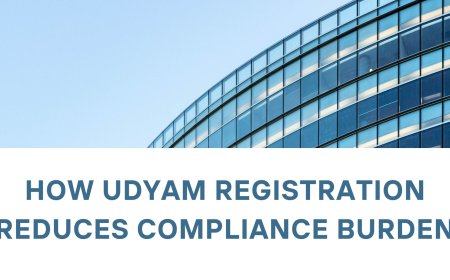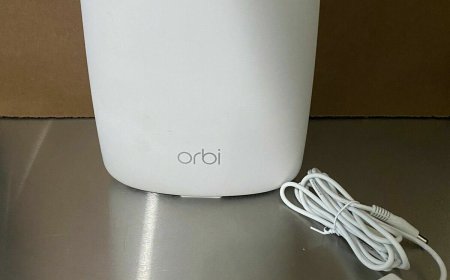Understanding EGR & DPF Systems: What Every Truck Owner Should Know
We’ll break down how EGR & DPF systems work, common problems you might face, and why proper maintenance is critical for diesel vehicles—especially semi-trucks and commercial fleets.

Modern diesel engines are designed for performance, efficiency, and reduced emissions. Two key components that help meet these goals are the EGR (Exhaust Gas Recirculation) and DPF (Diesel Particulate Filter) systems. These technologies work together to limit the pollutants released into the air, making them essential for compliance with environmental regulations. However, over time, both systems can become clogged or fail, leading to performance issues or costly repairs if not addressed early..
What Is the EGR System?
The EGR system is designed to reduce nitrogen oxide (NOx) emissions from diesel engines. It works by recirculating a portion of the engines exhaust gas back into the intake manifold. This lowers the combustion temperature and results in fewer NOx emissions.
Key Components of an EGR System:
- EGR Valve: Controls the flow of exhaust gases.
- EGR Cooler: Reduces the temperature of the exhaust gases before they re-enter the engine.
- Sensors and Lines: Monitor and regulate flow, pressure, and temperature.
By reusing some of the exhaust gases, the EGR system helps diesel engines meet emissions standards without sacrificing fuel efficiency.
What Is the DPF System?
The DPF, or Diesel Particulate Filter, captures soot and ash particles from the exhaust stream. These fine particles are a byproduct of diesel combustion and contribute to air pollution.
How the DPF Works:
The filter traps particulate matter, preventing it from being released into the air. Over time, this buildup is burned off through a process called regeneration, which occurs in three ways:
- Passive Regeneration Occurs during highway driving when the exhaust temperature is high.
- Active Regeneration Initiated by the engine control module to increase exhaust temperature and burn off soot.
- Forced Regeneration Requires professional intervention using specialized equipment if the filter is severely clogged.
Together, the EGR & DPF systems form a line of defense against environmental harm and ensure diesel trucks remain compliant with EPA regulations.
Common Signs of EGR & DPF Problems
Both the EGR and DPF systems can fail due to soot buildup, faulty sensors, or lack of maintenance. If your truck is showing any of these symptoms, it may be time for inspection:
- Check Engine Light: One of the first indicators of system failure.
- Loss of Power: Restricted exhaust flow affects engine performance.
- Poor Fuel Economy: Clogged systems cause the engine to work harder.
- Excessive Smoke: Especially black smoke on acceleration can point to soot buildup.
- Frequent Regeneration Cycles: Indicates that the DPF is filling up too quickly.
- Rough Idling or Stalling: Resulting from malfunctioning EGR valves or blocked filters.
Ignoring these signs can lead to breakdowns and costly downtime. Thats why many commercial drivers and fleet owners in Las Vegas trust Las Vegas Mobile Semi Repair for fast, expert service on EGR & DPF systems.
Causes of EGR & DPF Failures
Failures dont happen overnight. They are usually the result of ongoing wear or maintenance neglect. Here are the most common culprits:
1. Soot Overload
When the EGR system fails to regulate temperature correctly, excess soot can clog the DPF faster than normal, triggering more frequent regenerations.
2. Sensor Malfunction
Faulty sensors may provide incorrect data to the engine's control module, causing improper system operation or triggering limp mode.
3. Short Trips
Trucks that make short, low-speed trips may never reach the necessary exhaust temperature for passive regeneration, leading to excessive soot accumulation.
4. Low-Quality Fuel or Oil
Poor-quality diesel or engine oil increases the amount of unburned fuel and ash, which the DPF must trap, reducing its lifespan.
Routine cleaning and high-quality fuel are essential to preserving both the EGR & DPF components.
Importance of EGR & DPF Maintenance
Just like oil changes or tire rotations, EGR & DPF maintenance should be a regular part of your trucks service schedule. Heres why:
Improves Engine Performance
When these systems are clean and functioning properly, your engine runs more smoothly, delivers better fuel economy, and experiences less wear.
Prevents Costly Repairs
A simple DPF cleaning is much cheaper than replacing the filter entirely. Similarly, a faulty EGR valve, if caught early, can be replaced before causing engine damage.
Reduces Downtime
Trucks out of service cost money. Maintaining your EGR & DPF ensures you stay on the road instead of in the repair bay.
Maintains Emissions Compliance
Many regions require commercial vehicles to pass regular emissions inspections. A malfunctioning EGR or DPF system can result in fines or registration issues.
For mobile service or on-site DPF cleaning in Las Vegas, contact Las Vegas Mobile Semi Repair. They specialize in diagnosing and maintaining all makes and models of diesel engines.
EGR & DPF Cleaning vs. Replacement
Once a problem is identified, your mechanic will determine whether the EGR or DPF can be cleaned or needs to be replaced.
DPF Cleaning:
- Thermal Cleaning: Uses high temperatures to burn off soot.
- Air Blast Cleaning: Removes ash using compressed air.
- Liquid Cleaning: Specialized solvents dissolve soot and carbon buildup.
EGR Valve Cleaning:
- Chemical Soaking: Removes carbon deposits from the valve and cooler.
- Manual Scrubbing: For more severe buildup.
- Ultrasonic Cleaning: For advanced cleaning without damage.
If cleaning doesnt restore proper function, replacement may be necessary. Diesel truck owners should always follow the recommendations of trusted diesel mechanics familiar with EGR & DPF technology.
Should You Delete Your EGR & DPF System?
Some truck owners are tempted to "delete" or bypass the EGR & DPF systems to avoid costly maintenance. While this may seem like a quick fix, it comes with serious risks:
- Legal Issues: EGR/DPF deletes are illegal in many states and can result in heavy fines.
- Failed Inspections: You may not pass mandatory emissions tests.
- Engine Damage: Removing these systems affects how the engine was designed to operate.
- Void Warranties: Deleting emissions systems can void manufacturer warranties.
Staying compliant and properly maintaining your systems is not only safer but also smarter financially in the long run.
Trusted EGR & DPF Service in Las Vegas
Whether you operate a single semi-truck or manage an entire fleet, reliable EGR & DPF service is essential. You need a team that understands the complexities of diesel engines and can respond quicklyespecially when you're on the road.
At Las Vegas Mobile Semi Repair, you get:
- Mobile EGR and DPF diagnostics and service
- On-site forced DPF regeneration
- Expert replacement of EGR valves, sensors, and filters
- Quick turnaround times and affordable rates
Their ASE-certified technicians bring years of hands-on experience and specialize in Class 7 and 8 diesel trucks. With their mobile service, youll get back on the road faster with confidence.
Final Thoughts
The EGR & DPF systems in your diesel engine play a vital role in keeping emissions low, performance high, and your vehicle legally compliant. But like any part of your engine, they require regular attention. When left unchecked, clogged or malfunctioning systems can result in decreased fuel economy, power loss, and unexpected breakdowns.
By understanding how these systems work and investing in professional maintenance and cleaning, youll extend the life of your diesel engine and avoid unnecessary costs.


































